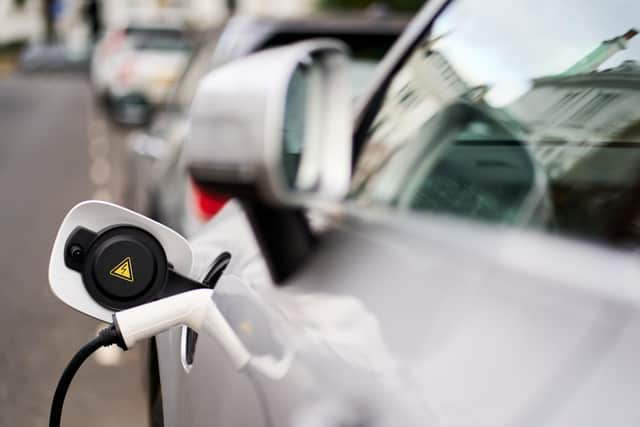Number of Wigan electric vehicles almost doubled last year
and live on Freeview channel 276
The Government is aiming to entirely phase out petrol and diesel-powered cars by 2030, with battery electric vehicles planned to account for all car sales by 2035.
Auto Trader said the recent surge is positive, but that electric cars are still too expensive for many people to make the switch from petrol and diesel-powered vehicles.
Advertisement
Hide AdAdvertisement
Hide AdDepartment for Transport figures show there were 653 battery-electric vehicles in Wigan borough at the end of last year – up from 341 at the end of 2020, a 91 per cent rise.


It meant 312 electric vehicles were newly registered in 2021 – more than double the 137 the year before.
However there have been complaints that there far too few charging points in Wigan to incentivise more motorists to “go electric”.
Across the UK, the number of electric vehicles on the roads almost doubled, increasing by 94 per cent from 215,000 at the end of 2020 to 420,000 last year.
Advertisement
Hide AdAdvertisement
Hide AdOn average, an electric car will emit around one-third less carbon dioxide than an equivalent petrol or diesel car, Transport and Environment, a European clean transport campaign group, says.
Ian Plummer, commercial director at Auto Trader, said the automotive industry has responded well to the Government's electric car drive.
Mr Plummer said: "Over the last year, we’ve seen significant strides in range capability, as well as a growing choice of makes, models and body types, right now there’s one new electric vehicle coming onto the market per week."
But he also stressed the need to further invest in charging ports, saying drivers must have confidence in being able to charge their cars to help make the transition from fossil fuels.
Advertisement
Hide AdAdvertisement
Hide AdThe Government hopes to install 300,000 public charging points by 2030, 18 times the number a decade previously.
There is also concern regarding the price of electric vehicles, which still represent a small share of the overall automotive market, Mr Plummer said.
"With the average electric vehicle costing around 30 per cent more than traditionally fuelled alternatives, they remain out of reach for all but the most affluent car buyer," he concluded.
